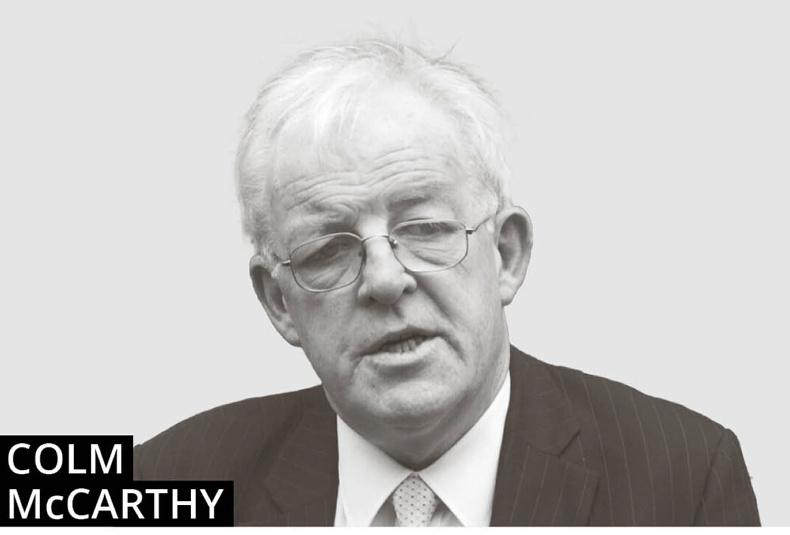Britain will commence detailed negotiations on its withdrawal and transition deals with the European Union in March and there will be preliminary talks later on the ultimate, post-Brexit, trading arrangements. But no binding long-term agreement is possible until Britain has become a third country in March 2019 and this strand of the discussions will be preliminary. It will result in a political understanding rather than a formal long-term trade deal.
Moreover, any post-Brexit trade deals with non-European countries may be discussed, but not implemented, until transition has been accomplished. The EU has indicated that the transition deal must end after 21 months, in December 2020, to coincide with the end of the current EU budget cycle. This is three months shorter than the UK government had sought.
So the likely pattern is that there will be no change to current trading arrangements with the EU or outside Europe, including trade in food, for the next three years up to the end of transition, December 2020. The subsequent relationship for Ireland with its biggest food export market will depend on the terms of the long-term trade deal between the UK and the EU, and any deals between the UK and non-European countries.
There is scepticism that these long-term deals can be negotiated in the very short-time window that is available and the transition period may have to be elastic.
Since most British agricultural trade, including substantial exports of some products, is with the EU and since EU rules and external tariffs inhibit imports from non-European countries, the National Farmers Union (NFU) in Britain has stated its preference for an outcome that would see a continuation of unfettered trade in Europe and no relaxation of product standards that would encourage non-European imports.
The NFU has also supported the retention of an open border for food and animals trade in Ireland. An outcome in line with the NFU’s wishes would be welcomed by farm organisations in this country. The trouble is that the public position of the British government is that the UK will not be staying in the EU’s single market and customs union, and moreover will be seeking new free trade deals around the world, including deals with countries that will seek better access to the UK food market. That position invites trade barriers in Europe and competition for British and Irish producers in the UK market.
The NFU is unlikely to get everything it wants, unless the domestic politics of Brexit takes an unexpected turn. The British government is committed to a Canada-style trade deal with the EU and entertains exaggerated ambitions about what it might contain. Any such deal will fall well short of continued unfettered access to EU markets. An entire government department has been established to negotiate new trade deals outside the EU and expectations are high. If these deals ever happen they will need to reduce tariffs on food imports and to relax at least some of the EU rules about product standards.
Conservative party politicians have been making contradictory remarks about agricultural policy post-Brexit. Echoing promises made by the Leave campaign during the referendum, backbencher Jacob Rees-Mogg has been stressing the opportunity for cheaper food imports through the elimination of tariff and other barriers against non-European suppliers.
His party colleague, Transport Secretary Chris Grayling, has been advocating an import-substitution policy, with Britain growing more of its own food. This could only happen with a protectionist policy against all-comers and higher food prices. It may be technically possible to divert efficient grain-producing farms in southern Britain into dairying, but it will certainly not be cheap to do so.
UK commitment
Even a UK commitment to continued membership in the single market, along the lines of the arrangement with Norway, would not embrace enough agricultural products to make any great difference. A third-country deal, outside the single market, is even more challenging. The deal with Canada, if simply transposed as the new long-term trading arrangement between the UK and the EU, would close the Irish border.
Thus, the UK’s Brexit minister David Davis has been describing Britain’s negotiating objective as ‘‘Canada plus, plus, plus’’, a phrase sufficiently vague as to include virtually any outcome, since it all depends on the content of the pluses. The reality is that the UK government has yet to face up to the trade-offs that will be needed, of which the most important for Irish agriculture is this simple question: is it worth the risk of a bad trade deal with the EU to pursue nebulous trade deals outside Europe with countries which may not really want to do business? Are cheaper food imports really available without giving too much away elsewhere, and is it politically saleable to sacrifice food safety standards, not to mention the viability of British farming?






 This is a subscriber-only article
This is a subscriber-only article










SHARING OPTIONS: